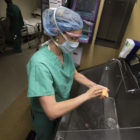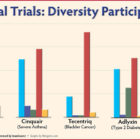stroke care
Time Is Key To Stroke Treatment, But Gaps Exist In Connecticut
|
Getting to the hospital quickly after suffering a stroke improves your chances of survival, but in Connecticut there are areas where access to the top level of stroke care is limited, health experts say. Two hospitals, Yale New Haven Hospital’s main campus and Hartford Hospital, are nationally certified as Comprehensive Stroke Care Centers, providing the highest level of stroke care available, which includes 24-hour access to neurological practitioners and the ability to perform complex endovascular therapies, including thrombectomies and endovascular coiling of an aneurysm, among other surgeries. Yale and Hartford hospitals are two of only 178 certified nationally as comprehensive stroke centers, according to The Joint Commission, which certifies hospitals. But when time is critical, traveling to New Haven or Hartford can be a risky commute from the northwestern and northeastern parts and other parts of the state, where hospitals certified in stroke care are sparse. In all, the state has 23 hospitals that are certified in some level of stroke care, up from 16 in 2013.









